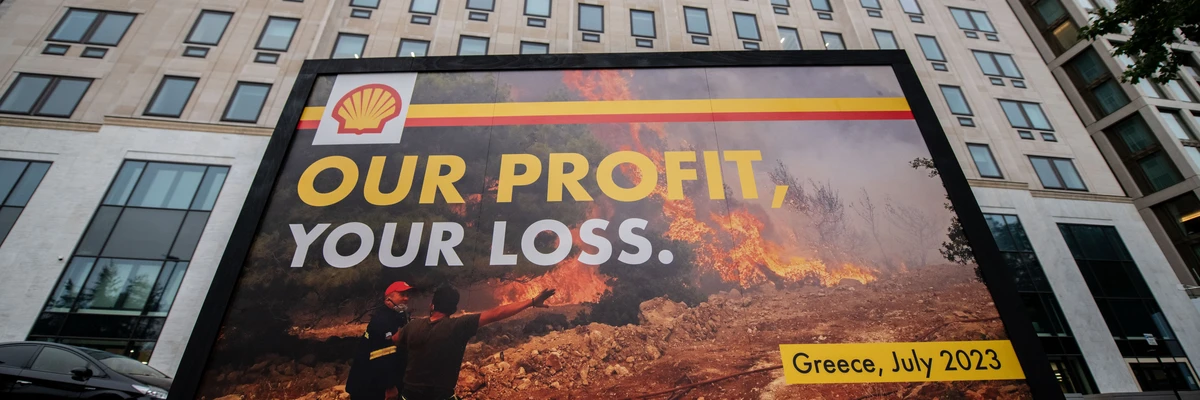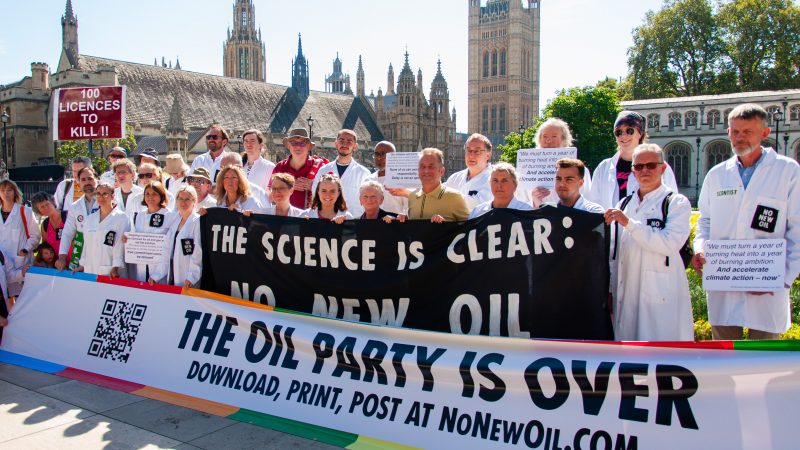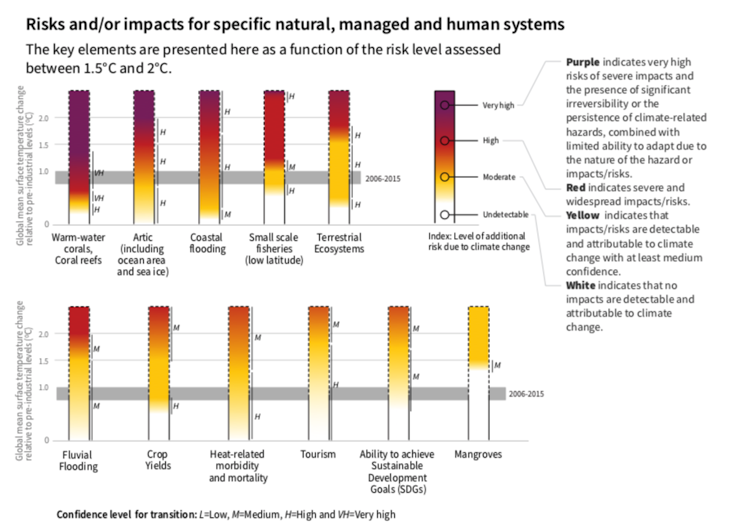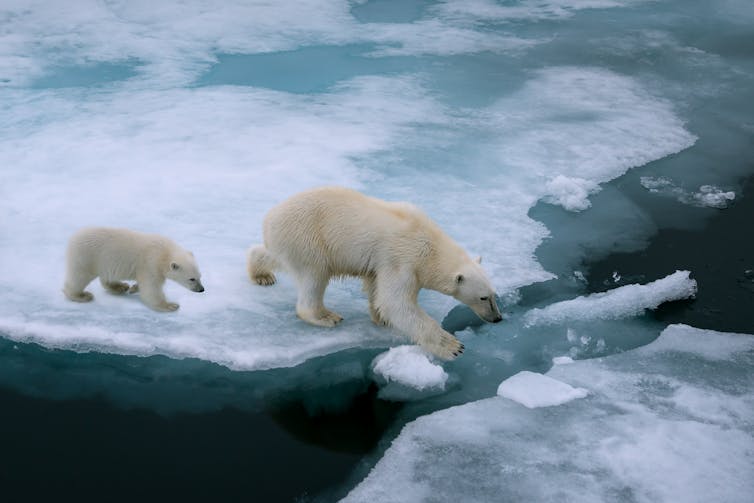‘End Fossil Fuels’ Protests Kick Off Worldwide Ahead of UN Climate Ambition Summit
Original article by JESSICA CORBETT republished from Common Dreams under Creative Commons (CC BY-NC-ND 3.0).

“Climate catastrophe is already devastating the lives and livelihoods of people across the world and primarily those in the Global South, who are least responsible for causing it,” said one campaigner.
Hundreds of demonstrations around the world demanding “a rapid, just, and equitable phaseout from fossil fuels in favor of sustainable renewables” began Friday ahead of United Nations Secretary-General António Guterres’ Climate Ambition Summit in New York City next week.
“From Pacific nations, heavily affected by sea-level rise and storms, through Mumbai to Manila, London to Nairobi, over 650 actions are planned in 60 countries, culminating in a march in New York City on September 17,” according to protest organizers.
The Global Fight to End Fossil Fuels “opposes the fossil fuel industry, which has made obscene profits at the expense of the world’s people, biodiversity, and a safe and livable climate,” added organizers, who expect millions to join the protests over the coming days. “It calls on governments and companies to immediately end fossil fuel expansion and subsidies.”
Demonstrators, journalists, and supporters shared footage from Friday’s actions on social media with the hashtag #EndFossilFuels.
The actions come amid the hottest summer on record and as experts continue to sound the alarm over unwavering environmental destruction, especially by the fossil fuel industry and its political and financial backers.
International scientists revealed this week that six of nine barriers that ensure Earth is a “safe operating space for humanity” have been breached, which followed recent findings that greenhouse gas concentrations, global sea level, and ocean heat content hit record highs last year.
Climate chaos—fueled by oil and gas giants that have spend decades lying about their planet-heating pollution along with rich governments and institutions that continue to break their promises and pump billions of dollars into the fossil fuel industry—is already killing people. The death toll from flooding in Libya this week has climbed to 11,300.
“The world is at a tipping point,” said Tyrone Scott of the War on Want and the Climate Justice Coalition in the United Kingdom ahead of protests this weekend. “Climate catastrophe is already devastating the lives and livelihoods of people across the world and primarily those in the Global South, who are least responsible for causing it.”
“We must uproot the systems of exploitation and oppression which keep the majority of the world’s population in poverty while lining the pockets of corporates and rich shareholders. This is a watershed moment. How we respond will determine how the world is shaped for generations,” Scott stressed. “We demand an end to fossil fuels. We demand a fast and fair transition. We demand climate justice.”
Tens of thousands of activists from across the United States are expected to join the March to End Fossil Fuels in New York City on Sunday. Marchers—backed by hundreds of organizations and scientists—have four key demands for President Joe Biden:
- Stop federal approval for new fossil fuel projects and repeal permits for climate bombs like the Willow project and the Mountain Valley Pipeline;
- Phase out fossil drilling on our public lands and waters;
- Declare a climate emergency to halt fossil fuel exports and investments abroad, and turbocharge the buildout of more just, resilient distributed energy (like rooftop and community solar); and
- Provide a just transition to a renewable energy future that generates millions of jobs while supporting workers’ and community rights, job security, and employment equity.
“Despite his numerous and explicit pledges to the contrary, President Biden has turned out to be a strong supporter of fossil fuels,” Food & Water Watch Northeast region director Alex Beauchamp, an organizer of the NYC march, said in a statement Friday.
“With each passing day, Biden’s failure to lead on clean energy drives the planet deeper into the abyss of irrevocable climate chaos,” he added. “We’re marching to send a message that true climate leadership means halting new oil and gas drilling and fracking, and rejecting new fossil fuel infrastructure like pipelines and export terminals—beginning now.”
Betamia Coronel, senior national organizer for climate justice at the Center for Popular Democracy, highlighted in a Friday opinion piece for Common Dreams that “BIPOC communities have always lived at the intersection of wealth disparity and the climate crisis,” and “it is Black, Indigenous, immigrant, working-class people of color who have been leading the efforts in the lead up to this historic march in NYC.”
Dozens of actors, activists, and climate leaders—including Bill McKibben, Blair Imani, Cornel West, Jameela Jamil, Jane Fonda, Rev. Lennox Yearwood Jr., Mark Ruffalo, Naomi Klein, Rosario Dawson, Rep. Rashida Tlaib (D-Mich.), Rebecca Solnit, and Vanessa Nakate—joined more than 700 groups on Friday in sending a pre-march letter to the U.S. president.
“The U.S. is the top global oil and gas producer and the largest historic greenhouse gas emitter. It is imperative that the U.S. change course and become a true global climate leader by ending the extraction and use of fossil fuels,” they wrote, urging Biden to commit to phasing out fossil fuels at the U.N. summit on September 20. “The world is watching.”
Biden has also faced mounting pressure to declare a climate emergency this year, as the United States has endured a record-setting number of billion-dollar disasters, from a deadly fire in Hawaii to Hurricane Idalia. Since last week, eight campaigners have been arrested outside the White House for a series of protests demanding a climate emergency declaration and other executive action to end the era of fossil fuels.
Organizers planned to continue the nonviolent civil disobedience campaign in Washington, D.C. on Friday, and warned that “each day Biden delays in taking this step is precious time lost to save lives and secure a livable future for humankind and countless other species.”
Original article by JESSICA CORBETT republished from Common Dreams under Creative Commons (CC BY-NC-ND 3.0).



